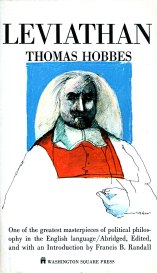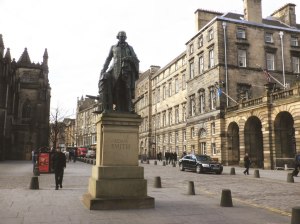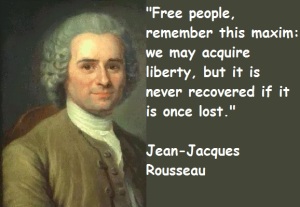
Today is a big day in Brazil. More than 100 million people will toddle along to their local polling station to cast their precious electronic vote. Today, Brazil’s huge population will not just decide who the next president will be, they also have to choose senators, governors and representatives at a municipal and local level. For weeks, every strip of grassland next to the main roads has been cluttered with billboards, huge photographs of dozens of well-heeled contenders and their electronic numbers. There are no written messages on the pictures, apart from the subliminal and obvious “Vote for Me”, which goes without saying.
Having found myself caught up in all the excitement and, as an outsider, mystified by all these names, numbers and bland photographs, I naturally consulted my colleagues and students to discover how they were going to choose their next political leaders. To my chagrin I discovered that the vast majority of these “delegates” are unknown; anonymous faces with numbers to match. In fact, it wouldn’t be stretching the truth to suggest that many people will vote for the person who, from their photographic portrait, appears to be the most sincere and reliable. I won’t say “trustworthy” as Brazil has a shameful history (one which runs right up to the present) of corruption in politics at all levels, leading most voters to adopt a cynical attitude to the electoral proceedings. It looks like a case of “meet the new boss – same as the old boss”, as The Who’s Pete Townsend aptly put it in his ironically titled song, Won’t Get Fooled Again.

What a daft system! Surely nobody should be voting for someone they have never heard of. But then that is the nature of metropolitan politics where huge numbers of people live together and know next to nothing about how their city is run. It may sound idealistic, but wouldn’t it be great to get to know your candidate, to sit down and have a little chat? Only then would you know if this was the kind of person who best represents your opinions. Not only could you broach all those touchy subjects like poverty, education and corruption, you could get a feeling whether this candidate was understanding, humane, kind – somebody worthy of your vote. You could also check whether they have bad breath and expect you to pay for the drinks (obviously a no-brainer).
The biggest issue, as I see it, is how to make our societies fairer: how to engender more equality of wealth and opportunity. The simple solution – to tax the rich and give to the poor, Robin Hood-style, is surely way too simplistic. Wouldn’t that just make rich people not want to work anymore and, at the same time, make poor people lazy? Well, it depends. Like all political ideals, the answers lie somewhere deep in the darker realms of philosophy. The bigger question is: are we human beings basically good-hearted, sharing, caring creatures, or are we selfish individuals out to get everything we can for ourselves and our precious families? More to the point – shouldn’t all those candidates with the big beaming faces know the answer to these quandaries?

Of course they should! So, here’s the thing – all the candidates should be made to sit a philosophy exam and the results made public before the election. You see, I’m full of great ideas! But hang on a minute – do I know myself what the philosophers say about human nature? Well, erm, let me see…
Thomas Hobbes (1588-1679): Here we have a very influential English pessimist who wrote in his impressive tome Leviathan that human life would be “solitary, poor, nasty, brutish and short” without the powers that be keeping tight control on everybody. That’s because human beings have a natural tendency to fight with everybody else in the name of self-preservation. What Hobbes called “every man against every man” or what we call today, proverbially, “dog eat dog”. (Oh dear…not a good start!)
Jean-Jaques Rousseau (1712-1778) “Man was born free”, Rousseau famously proclaims, “and he is everywhere in chains.” Sounds familiar? Well, the Frenchman’s invention of the term “noble savage” might also ring a bell. But what does he mean? Well, unlike Hobbes, Rousseau is a bit of a romantic. He believes that in our true “natural” state, human beings do not know good and evil; in fact our ignorance of vice makes us unable to do bad things to others. Men and women are naturally peaceful and “passionate”. (Now this is more like it…sounds lovely!)
Adam Smith (1723-1790)

This Scottish economic philosopher has got a lot to answer for, my friends. He believed that yes, man is selfish, but that self-interest will actually benefit everybody else. Sounds dumb? Well, Smith argues in The Wealth of Nations that the creation and maintenance of business practices will benefit the whole of society, from the managing director to the cleaner who scrubs his floor. This is the thinking that spawned “neo-liberalism”, a free-market, no-holds-barred economic system which ultimately led to the chaotic global financial crisis we saw just a few years ago. Aggressive capitalism, Adam Smith-style, surely does not benefit everyone. How could it?
Karl Marx (1818-1883) My homeboy, in case you hadn’t guessed, this infamous German revolutionary believed that humans are naturally sociable “self-expressive animals who need one another to survive, but who come to fulfillment in that companionship over and above its social usefulness”, according to Marxist professor Terry Eagleton. Humans are political creatures, in the sense that we always have to organize ourselves and work together in order to produce the things we need. The problem is, in the advanced capitalist societies of today, little people don’t get a chance to voice their opinions or have the power to change the mighty economic system.

Which brings me back to the Brazilian elections today. Everyone I have spoken to here has very strong opinions about their beloved country. Brazilians are passionate about politics and have a wealth of ideas about how the country’s institutions need to change. How, for example, the cynicism of corrupt, selfish politicians can be traced back to a woefully underfunded education system which fails to enlighten schoolchildren about the crass limitations of consumerism and economic self-interest.
Luckily, being an ex-pat, I don’t have to vote today, but if I was Brazilian, I would be rooting for the candidate who regularly visited all the areas (including the very poor) of his or her constituency to actually speak with the people; to meet the voters – as many of them as humanly possible. That is true political representation. I would also be tempted to vote for someone who was stunningly attractive, of course – as long as they had read all three volumes of Das Kapital!